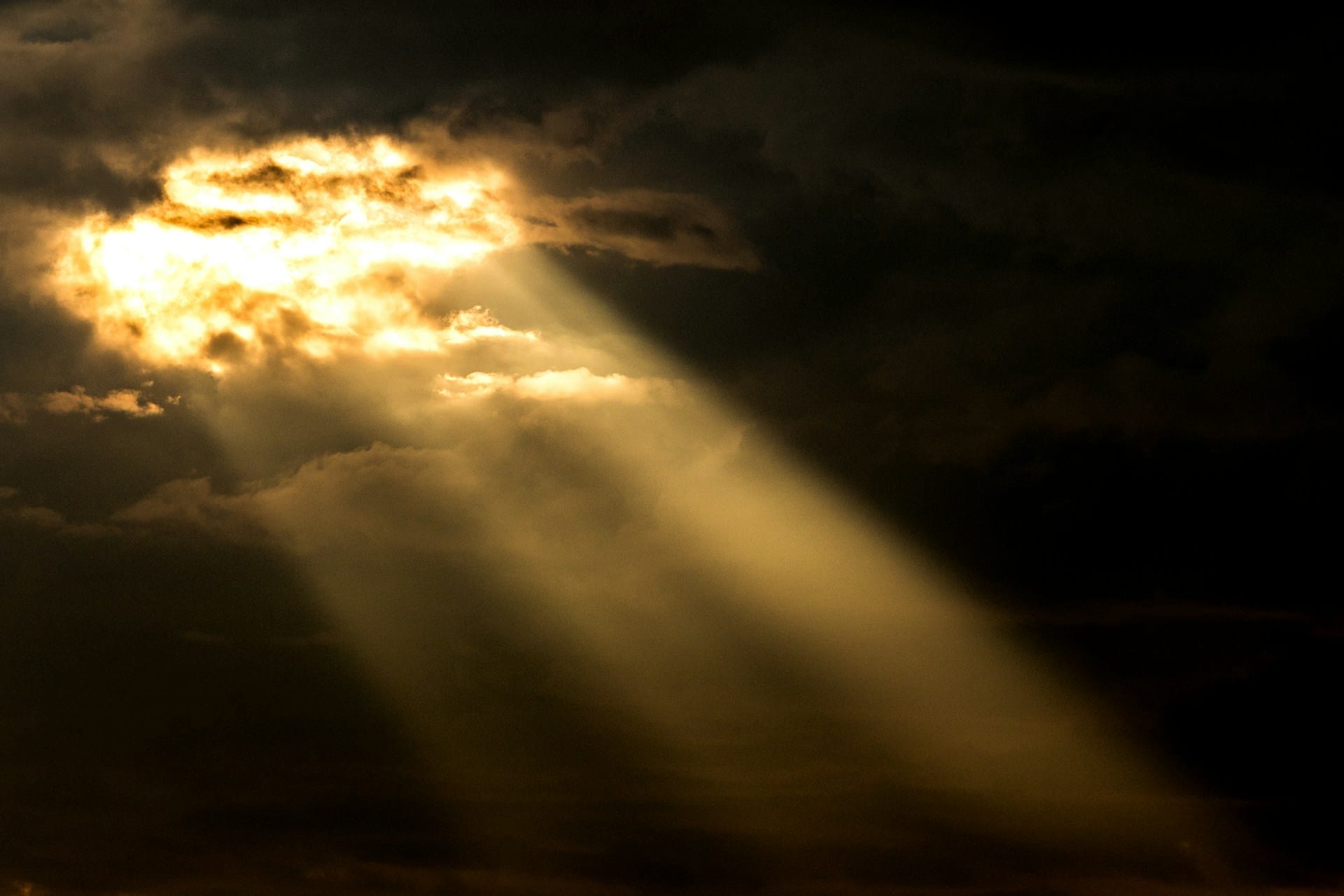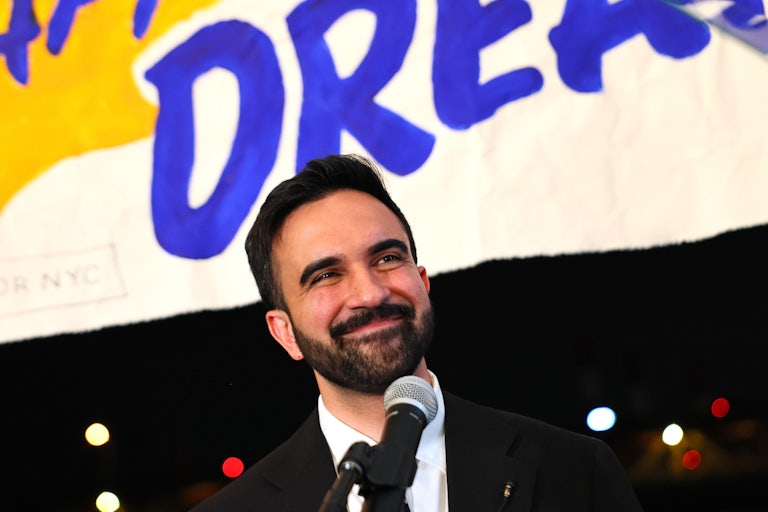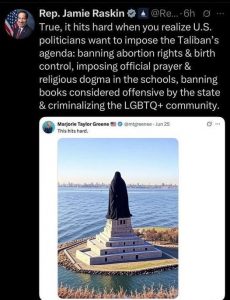- We have been here before: comparing 1940 to 2025;
- Steven Novella assesses whether skepticism has made any progress in recent decades;
- The irony of MAGA being outraged by a Muslim candidate for New York City’s mayor;
- Conservative presumption and arrogance in RFK Jr.’s new advisory vaccine board;
- Heather Cox Richardson undermines Pete Hegseth’s claim about “the most complex and secretive military operation in history.”
This too shall pass.

OnlySky, Katie Malone, 27 Jun 2025: Do not despair, subtitled “For we have walked this path before.”
The darkness of fascism was gathering on the horizon. Politicians rose to prominence by demonizing the alien and the other, spreading fear of imaginary enemies within as they grasped for dictatorial power. Violent, cultish political movements banned books, scorned intellectuals and rejected tolerance, worshipping the leader and promising to restore lost greatness. The rule of law was under siege, and fear stalked the streets. The drums of war beat in the distance.
Some people saw the threat clearly, but many more dismissed it.
“It can’t happen here,” some assured themselves. “It doesn’t affect my life,” shrugged others. “They make some good points; they’re not all bad,” said far too many.
And then there were those who saw the darkness for what it was and despaired of ever glimpsing light again.
This was the world in 1940, and this is America in 2025.
A point by point comparison of now and 1940. It’s especially notable how people we now regard as heroes, or pioneers, like Henry Ford and Charles Lindbergh, were in fact racist, isolationist, and/or antisemitic. And how other people we now regard as heroes, or pioneers, were champions of idealistic American values. Sinclair Lewis, Charlie Chaplin, and his film The Great Dictator (the article includes a YouTube clip of its concluding speech). (Which I confess I’ve never seen.)
The big picture here is, of course, human nature. Life now *is* better than in the past, but the tribalistic, xenophobic aspects of human nature keep undermining human progress.
\\\
One way life is better now than in the past is our increased understanding of the flaws of base human nature, how it has become optimized for survival, not understanding reality, a reality humanity needs to understand to solve existential problems. But such progress, as in the above item, proceeds by fits and starts.

Skeptical Inquirer, Steven Novella, from July/August 2025 issue: After Decades of Skepticism, How Are We Doing?
What we’re talking about:
Skepticism, which includes not only scientific literacy but critical thinking skills and media savvy, has evolved into a sophisticated skill set—arguably the most important skill set there is—in a world simultaneously flooded with complex science and information along with misinformation, disinformation, and outright fraud.
And whether it’s been successful:
I think we have been almost entirely correct. At least in the broadest sense, we have been on the correct side of science pretty consistently (especially once there is enough time to work out any internal disagreements). To be fair, this is partly because we pick a lot of low-hanging fruit. Whether or not Bigfoot exists, we are being visited by aliens, astrology works, or homeopathy is anything but magic water is not, scientifically speaking, a tough call. Our job there is not to make difficult decisions but to understand why so many people are attracted to and believe things that are clearly not true.
But, I would say, the low-hanging-fruit are what the general population notices.
In practice, what kind of track record does this skill set have? Pretty damn good, even if you move past the low-hanging fruit. Do vaccines or any vaccine ingredients cause autism? Nope. Are GMOs causing massive public toxicity? Doesn’t look like it. Is the alternative medicine “revolution” going to start spitting out safe and effective natural cures? I wouldn’t bet on it. Cars that run on water? Zero-point energy? Alien autopsy? Three strikes. Evolutionary theory continues to thrive, while intelligent design has predictably faded into intellectual obscurity.
\\
The most telling and ironic story today is the conservative outrage that a Muslim, Zohran Mamdani, won the Democratic primary for mayor of New York City.

The New Republic, 25 Jun 2025: MAGA Enters Racist Meltdown Mode Over Zohran Mamdani’s New York Win, subtitled “Zohran Mamdani pulled off a stunning upset to win the Democratic mayoral primary in New York City.”
A progressive won New York City’s Democratic mayoral primary Tuesday, sending the far-right media sphere into a tailspin.
Zohran Mamdani’s campaign platform was practically the opposite of the president’s, arguing for higher taxes on corporations and the ultrawealthy, pitching new green initiatives for public facilities, making the city an LGBTQIA+ sanctuary, and advocating for raising the city’s minimum wage. It also planned for “Trump-proofing NYC,” lobbying for countermeasures against Donald Trump’s ICE raids, skyrocketing prices under his tariff proposal, and saving vital social services for working New Yorkers.
So Trump’s allies did not take kindly to the news.
New York Representative Elise Stefanik derided Mamdani as a “radical, Defund-the-Police, Communist, raging Antisemite,” arguing that New York Governor Kathy Hochul and state Democrats had “fully embraced Marxism, antisemitism, anti-capitalism, and sheer insanity.”
Aside from the fact that *many* people oppose Trump’s agenda, and the lack of any actual evidence that Mamdani is any kind of Islamic fundamentalist, my take is this: why is a Muslim candidate any worse than a Christian candidate? Especially since the extreme MAGA Christians *are* trying to enforce their religious agenda on the rest of the country?
For example, on Facebook today:
\\\
Conservative presumption and arrogance.

NY Times, opinion by David Wallace-Wells, 18 Jun 2025: ‘I Think He Is About to Destroy Vaccines in This Country’ [gift link]
This concerns RFK Jr.’s firing of the 17 members of the vaccine advisory board, and replacing them with like-minded vaccine skeptics. And RFK Jr.’s bizarre claim that no one in the world knows how to do science properly, other than himself.
Robert F. Kennedy Jr., the health and human services secretary, staged his night of the long knives a week ago Monday, firing all 17 members of the vaccine advisory board, the Advisory Committee on Immunization Practices, in one fell swoop — a historically unprecedented action and one that broke an explicit promise he made to Senator Bill Cassidy, Republican of Louisiana and a physician, as a condition of his confirmation as secretary. The epidemiologist and immunologist Michael Mina called Kennedy’s move a “code red” for vaccines in America.
Much more; this is a gift link (I’m allowed ten a month) from NYT and I haven’t used them all up for June. The piece ends by anticipating what would happen if RFK got autism implicated as a vaccine injury.
Adding autism, Offit says, would break the program, making it immediately untenable for manufacturers to continue producing or delivering shots in the United States. The liability would be simply too much for drugs that offer the companies almost no profit. Suddenly, we would be faced not with problems of guidance or coverage but of simple accessibility — all those shots that brought such miraculous ends to centuries of infectious diseases in the second half of the last century no longer available in this one.
“I think we are on the verge of losing vaccines for this country, from this country,” Offit says. “And the reason is that Robert F. Kennedy Jr. will hold up a paper, in the next four or five months, that says it’s aluminum in vaccines that are causing a whole swath of problems, including autism,” he goes on. “I think he is about to destroy vaccines in this country. I do.”
\\\
Historian Heather Cox Richardson challenges a claim by Pete Hegseth.
Letters from an American, Heather Cox Richardson: June 26, 2025
This morning’s press conference with Defense Secretary Pete Hegseth featured an apparently angry Hegseth yelling at the media for contradicting President Donald Trump’s claim that last weekend’s strikes against Iran had “completely obliterated” its nuclear weapons program. Hegseth seemed to be performing for an audience of one as he insisted on the made-for-television narrative the administration has been pushing. He said: “President Trump directed the most complex and secretive military operation in history, and it was a resounding success resulting in a ceasefire agreement and the end of the 12-day war.”
D-Day, the June 6, 1944, Allied invasion of France, took a year of planning, involved 156,000 Allied soldiers and 195,700 naval personnel, and required cooperation of leaders from thirteen countries. It remains the largest seaborne invasion in history.
Never mind the disputes about how successful the Iran strikes actually were. Trump and Hegseth make claims; they don’t need evidence.







